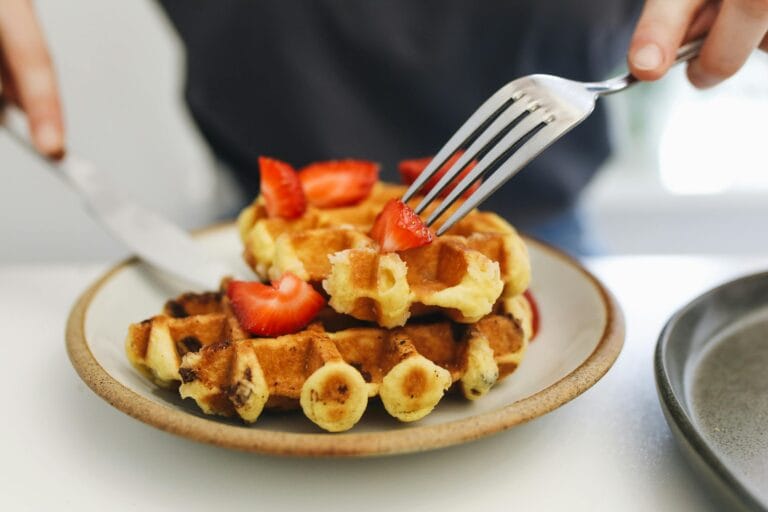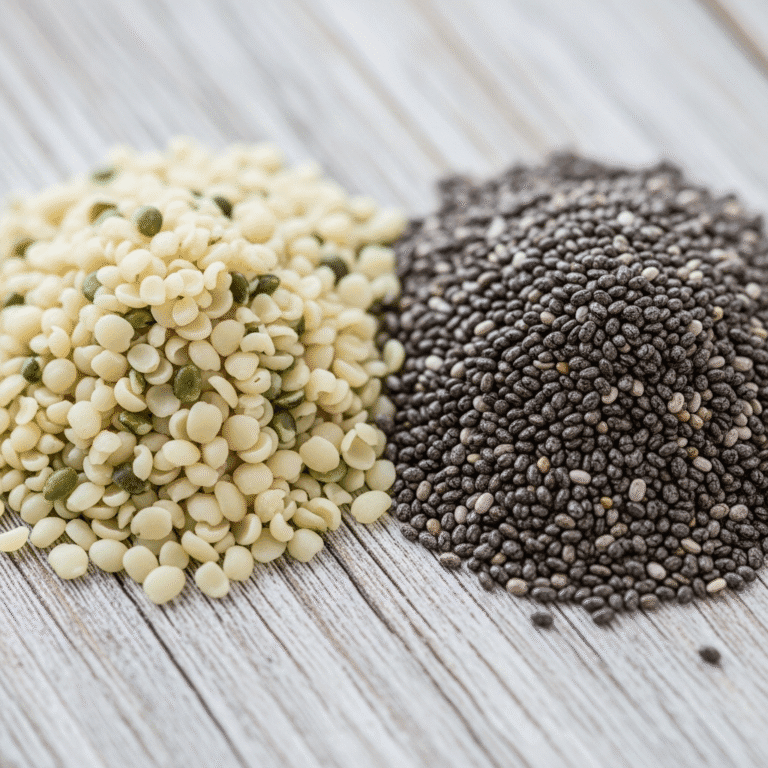FREE SHIPPING OVER $50
10 Cancer-Fighting Foods Every Woman Over 40 Should Be Eating—Backed by Science

Entering your 40s and 50s can be a period of profound change and reflection. It’s a time when many of us begin to think more seriously about our long-term health and well-being. We become more aware of our family history, and the conversations around disease prevention take on a new, more personal urgency. While you can’t control your genetics, there is one area where you hold incredible power: your diet. The food you eat isn’t just fuel; it is medicine. It can be your first line of defense against some of the most serious health challenges we face, including cancer.
The truth is, many of the foods you see in your local grocery store aisle contain potent compounds that can help protect your body at a cellular level. This isn’t about expensive superfoods or complicated diets. It’s about empowering yourself with knowledge and making small, consistent choices that can have a massive impact on your longevity. We’ve consulted with the latest research and scientific findings to bring you a list of 10 common, delicious foods that every woman over 40 should be eating to build a more resilient, cancer-fighting body.
The Science of Cancer Prevention: How Food Fights Back
To understand how these foods work, you need to know a little bit about what happens inside your body. At a basic level, cancer is the uncontrolled growth of abnormal cells. Our bodies are constantly under attack from things like pollution, UV radiation, and even metabolic byproducts, which create unstable molecules called free radicals. These free radicals can damage our DNA, setting the stage for cancer.
This is where food becomes your hero. The foods on this list are rich in two key types of compounds:
- Antioxidants: These are like your body’s personal security guards. They actively neutralize free radicals, protecting your cells from damage.
- Phytochemicals: These are natural, biologically active plant compounds. Many phytochemicals have been shown to stop tumor growth, reduce inflammation, and even help regulate hormones—a key factor for women in their 40s and 50s as their bodies change.
By regularly consuming foods packed with these compounds, you are essentially creating a cellular environment that is hostile to cancer.
10 Cancer-Fighting Foods Every Woman Over 40 Should Be Eating
1. Broccoli and Other Cruciferous Vegetables
Broccoli is more than just a healthy side dish; it’s a nutritional powerhouse. The cancer-fighting compounds in broccoli and other cruciferous vegetables like cauliflower and Brussels sprouts are called glucosinolates. When you chew and digest them, these compounds are converted into isothiocyanates, like sulforaphane. Scientific studies have shown that sulforaphane can help detoxify your body by activating enzymes that eliminate carcinogens before they can damage your cells. Research also suggests a link between regular consumption of cruciferous vegetables and a lower risk of several types of cancer, including breast and ovarian cancer.
How to Use It: Steam, roast, or stir-fry broccoli to maintain its nutrients. You can also add broccoli sprouts to salads, as they contain a much higher concentration of sulforaphane.
2. Berries (Especially Blueberries and Raspberries)
These small, vibrant fruits are loaded with antioxidants and flavonoids. Berries are known for their high concentration of anthocyanins, which are powerful compounds that give them their rich red and blue hues. These compounds have been shown to help prevent the formation of new blood vessels that feed tumors and reduce inflammation, a known contributor to cancer. Studies have found that women who eat more berries may have a lower risk of developing various cancers.
How to Use It: Add a handful of berries to your morning oatmeal, yogurt, or a smoothie. They also make a great, refreshing snack on their own.
3. Tomatoes
Tomatoes are a fantastic source of lycopene, a carotenoid that gives them their red color. Lycopene is a potent antioxidant that can help protect cells from damage. While eating raw tomatoes is beneficial, cooking them actually increases the bioavailability of lycopene, making it easier for your body to absorb. This is especially relevant to protecting against certain hormonally-driven cancers.
How to Use It: Use cooked tomato sauce as a base for pasta or pizza, or add sun-dried tomatoes to salads and sandwiches. A hearty tomato soup is another great way to get a dose of lycopene.
4. Garlic and Onions
These pungent pantry staples contain organosulfur compounds, which have been studied for their ability to stop the growth of cancer cells. Research suggests that a diet rich in allium vegetables like garlic and onions is linked to a lower risk of cancers of the stomach, colon, and prostate. These compounds work by protecting cells and helping to prevent damage to your DNA.
How to Use It: Sautéed garlic and onions are a staple in many cuisines. Add them generously to soups, stir-fries, and pasta dishes for a flavor and health boost.
5. Turmeric
The bright yellow spice is a key ingredient in many curries and a potent anti-inflammatory agent. The active compound in turmeric is curcumin, which has been the subject of extensive research. Studies have found that curcumin can help disrupt the pathways that cancer cells use to grow and spread. It is also a powerful antioxidant that helps protect against cellular damage. While more research is needed on its direct impact, incorporating turmeric into your diet is a delicious way to boost your body’s anti-inflammatory defenses.
How to Use It: Add a teaspoon of turmeric to your scrambled eggs, a curry dish, or make a calming turmeric latte with a dash of black pepper (which helps with absorption).
6. Leafy Greens
Kale, spinach, collard greens, and other leafy vegetables are loaded with vitamins, minerals, and phytochemicals like carotenoids, which are strong antioxidants. They also contain folate, a B vitamin essential for repairing and maintaining DNA. Scientific studies have shown that a high intake of leafy greens is linked to a lower risk of several cancers, including those of the stomach and breast.
How to Use It: Blend a handful of spinach into your morning smoothie, add kale to a salad, or sauté collard greens with garlic for a tasty side dish.
7. Fatty Fish (Salmon, Sardines, Mackerel)
Fatty fish are rich in omega-3 fatty acids, which are known for their powerful anti-inflammatory properties. Chronic inflammation can contribute to cancer development, so a diet that helps combat it is key to prevention. Research has linked regular consumption of fatty fish with a reduced risk of breast and other cancers.
How to Use It: Bake, grill, or pan-sear salmon for dinner. Canned sardines and mackerel are an easy and affordable way to get a quick dose of omega-3s.
8. Legumes (Beans, Lentils, Peas)
Legumes are an incredible source of fiber and various phytochemicals. Fiber plays a crucial role in maintaining a healthy gut microbiome, which is now understood to be vital for overall health and cancer prevention. A diet rich in fiber can help move waste through your digestive system, which reduces the time that potential carcinogens are in contact with your intestinal walls. Studies consistently link a high-fiber diet to a lower risk of colorectal cancer.
How to Use It: Add lentils to a hearty soup, make a bean salad for lunch, or use chickpeas as the base for a savory hummus.
9. Green Tea
Green tea is another potent source of catechins, a type of antioxidant that can help inhibit tumor growth. The most famous catechin in green tea is EGCG (epigallocatechin gallate), which has been the focus of countless scientific studies. It has been shown to protect cells from damage and may even help prevent the growth of new blood vessels that supply tumors.
How to Use It: Enjoy a warm cup of green tea in the morning or as an afternoon pick-me-up. Opt for high-quality loose-leaf tea for maximum benefit.
10. Citrus Fruits
Oranges, lemons, grapefruits, and other citrus fruits are famous for their high vitamin C content, a powerful antioxidant. But they also contain other beneficial compounds, like flavonoids, that have been shown to help inhibit the growth of cancer cells. Studies suggest a link between a high intake of citrus fruits and a reduced risk of upper digestive and stomach cancers.
How to Use It: Squeeze fresh lemon into your water, add grapefruit to your breakfast, or simply peel an orange for a quick, healthy snack.
A Holistic Approach to Cancer Prevention
While what you eat is a crucial piece of the puzzle, a truly effective cancer prevention strategy involves a holistic approach. These foods are your allies, but they work best when paired with other healthy lifestyle habits.
- Maintain a Healthy Weight: Carrying excess weight is a significant risk factor for several types of cancer, especially for women after menopause.
- Stay Active: Regular physical activity can help you maintain a healthy weight, reduce inflammation, and improve your immune function.
- Limit Alcohol: The scientific consensus is clear: the less alcohol you consume, the lower your cancer risk.
- Don’t Smoke: This is the single most important step you can take to reduce your risk of cancer.
By embracing these habits and making these 10 foods a regular part of your diet, you are doing more than just eating well. You are taking a proactive, empowering step toward a healthier, more resilient future. The path to a long and vibrant life is paved with small, deliberate choices. Start with your plate today.
Related Articles
- Stop Mixing Chia Seeds With These 5 Foods—It Could Be Sabotaging Your Health Goals
- Frozen Foods That Lower Blood Pressure? Dietitians Swear by These 8 Picks That Are Already in Your Supermarket
- Stop Wasting Money on Vitamin B12 Supplements —These 10 Foods Boost Brainpower Naturally
- Craving Fries? This Science-Backed Potato Hack Helps You Avoid Blood Sugar Spikes
- Tired of Feeling Hungry Before Lunch These 10 Breakfast Hacks Pack Serious Fiber and Protein







